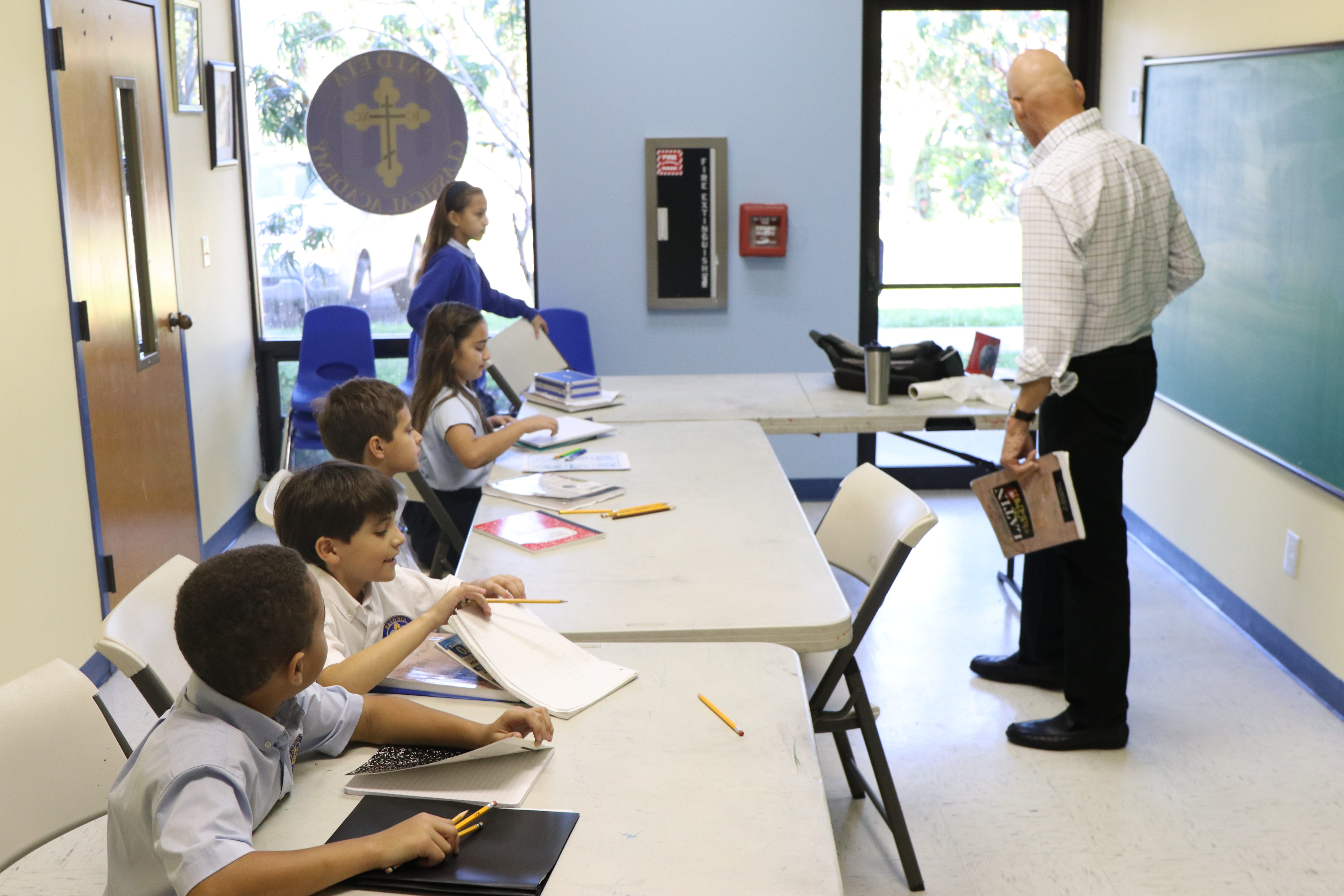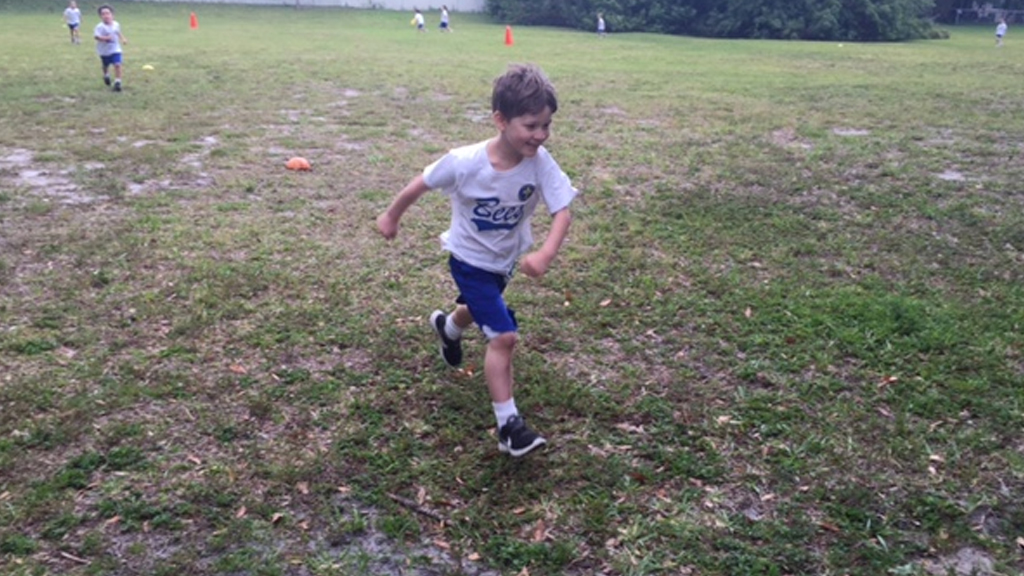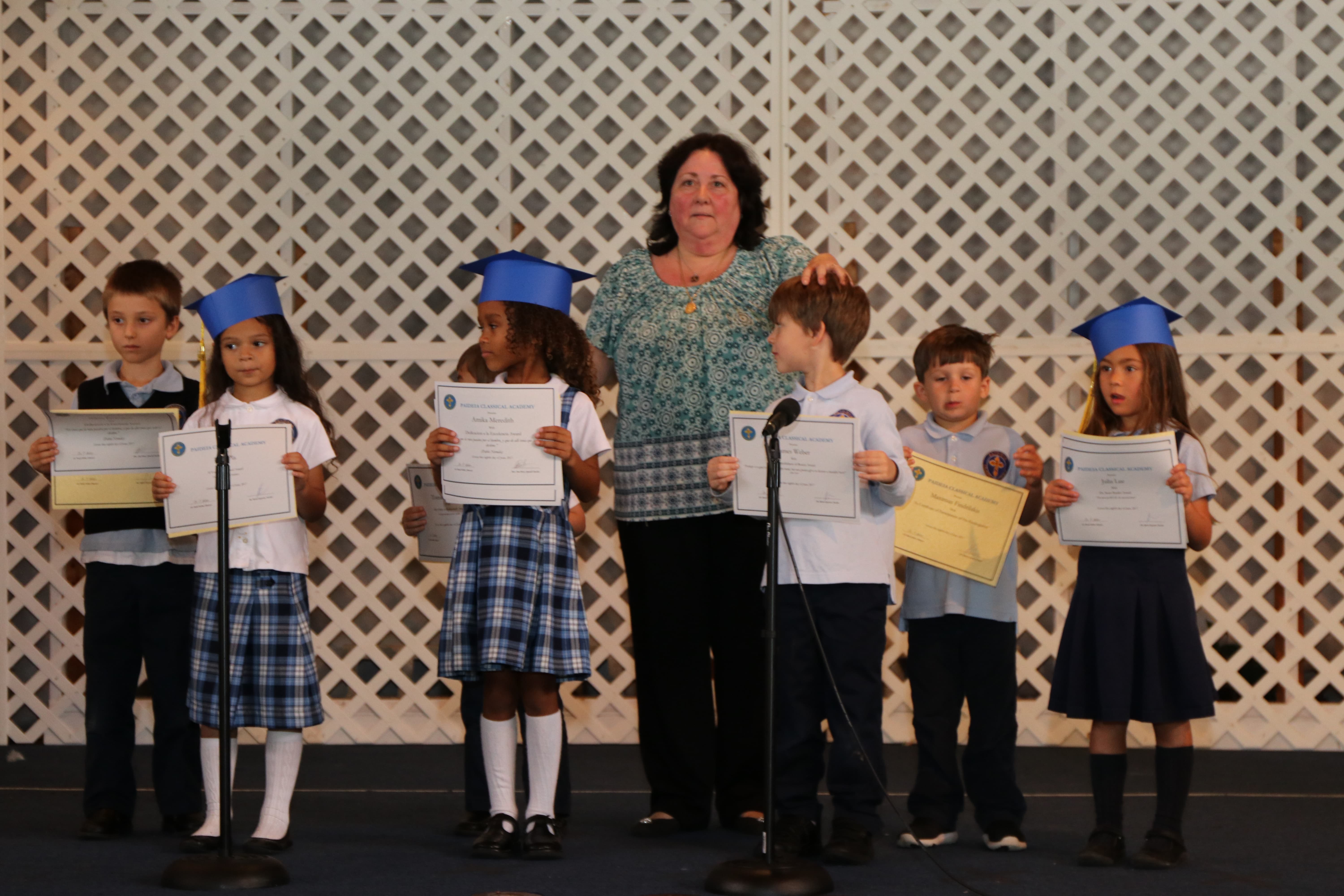Classical Education for the Primary Stage
Primary Stage (roughly six- through seven-year-olds) Motto: “Our letters, our numbers, our stories, and our play are our wisdom.”
During their two years in the Primary Stage, the students are engaged in what is perhaps the most critical step towards their readiness for the grammar class, the first formal stage of classical education.
Primary Stage Content: classical stories, beautifully and artfully illustrated; poetry and rhymes; church hymns and prayers; age-oriented classical art; traditional games; lives of the saints, especially children saints; legends of virtue; calligraphy and copywork; numbers and patterns; natural sciences; world history; and geography.
Primary Stage Method: language, phonics, deciphering, playing and building, mimicking, challenging, and emerging Socratic dialogue.
Primary Stage Goal: Within the larger goal of acquiring lifelong self-teaching and independent thinking abilities, this stage focuses on the following three goal subsets:
1. Mastering phonics and numbers, which will permit setting up the most important layer of a love for reading to last for the rest of the child’s life.
2. Setting the foundations of a proper ordo amoris (order of affections). This stage is critical, as it is now that children are most receptive, and most moldable; therefore, it is the most appropriate time to begin the groundwork of the order of affections edifice. Children are not born with the right responses, but are constantly acquiring abilities to do so even from their mother’s womb. What was more or less an act of instinct now becomes choice and habit.
3. Modeling a proper Christian worldview. Primary Stage Virtues: love, obedience, honesty, kindness, responsibility, patience, diligence, and courage.
What our days look like in the Primary class:
• Read / sing / recite aloud
• Memorize
• Engineer
• Narrate / answer questions
• Build
• Imagine
• Draw / Write
• Play
• Discover and interpret
On the cusp of Grammar Stage, our Primary students are acquiring sine qua non knowledge and skills meant to provide them with the tools and virtues needed as they enter that first formal stage of classical education. If the grammar stage is about owning the building blocks of education, and learning to put them together, this primary stage is about receiving, contemplating the form of, molding, and burning the mud and water into bricks which will form those blocks.
In Language Arts, the primary stage students’ main goal will be mastering the phonics along with the print handwriting, as they immerse themselves into the world of storytelling (with a focus on the enduring classic storybook treasures, with deeper focus on comprehension, vocabulary in context, spelling techniques, punctuation, and capitalization) and poetry. Beginning with second grade, Primary students embark on a nine-year journey, the end of which will signal their mastery of English language, brought on by the study of English grammar, using a comprehensive, incremental approach and a very thorough curriculum. Hand in hand with the study of English, children continue to study Greek and Spanish, and take a captivating world history tour through Ancient Times, Middle Ages, Early Modern Times, and The Modern Age.
Mathematics at this stage continues the manipulative approach, but significantly increases the volume and importance of individual work, as students are able to work independently for longer periods of time. Students are drilled on basic math facts and learn to apply them to real life situations; they continue to study time-related concepts and patterns, and are introduced to new concepts like fractions, graphs, and probabilities, along with basic geometry notions like lines, angles, perimeter, and area of flat shapes. The science curricula at this age continue to focus on exploration and contemplation of God’s Creation, helping students start to differentiate between hypotheses and facts, and aligning this with intense vocabulary building and observation of methods and inventions. In their two years in the primary stage, the students will go through one year of biology and one year of earth science.
The art and music studies continue to train the child’s mind and soul into recognizing and admiring beauty and truthfulness, while in the same time employing the voice and the hand into producing better defined and inspiring work.
There are a few endearing images that will forever stay in the heart of a primary student: reading aloud books that become reality during recess play; navigating the tumultuous computational waters during math; patiently observing the crawl of a caterpillar on its way to becoming a butterfly, or tirelessly running the green fields during physical education. At the end of this unique moment, more ephemeral than the duration between two breaths, students will have perhaps grown in abilities more than in any other stage, and will be ready for the entrance into the Grammar Stage.


All primary classes are taught by trained Classical teachers and teaching assistants within their own classrooms. The exceptions are Spanish, Latin, Greek, library, and music, all of which are taught by specialist staff. After-school enrichment courses occur weekly and are taught by qualified, specialized teachers.
